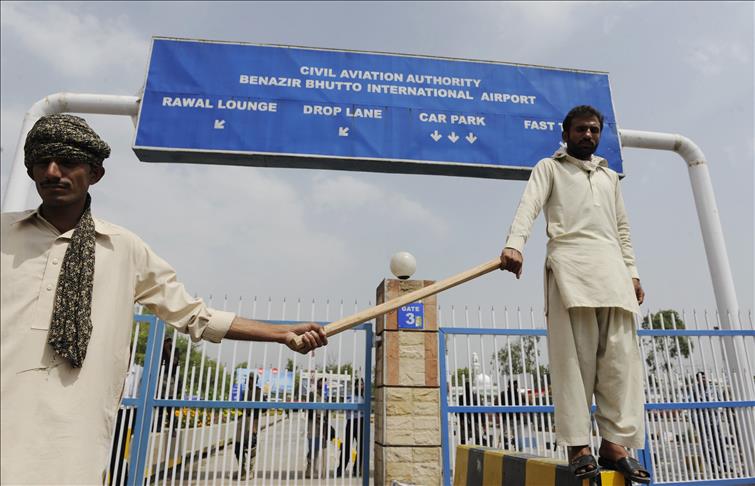
By Aamir Latif
ISLAMABAD
Could Pakistan witness a revolution? It seems a far-fetched idea but that is exactly what being called for by Tahir-ul-Qadri, a Sufi preacher and leader of political party Pakistan Awami Tehrik. The Canadian-based politician arrived in Pakistan on Monday to implement the "revolution" he claims is the only panacea to Pakistan's ills.
An ally of current Prime Minister Nawaz Sharif in the early 1980s, the two parted ways when Qadri formed his Minhaj-ul-Quran movement, the religious organ for his political party. It owns nearly 100 schools and madrassahs across Pakistan but mainly in northeastern Punjab, the largest and richest province, where it has thousands of students. These students are considered the source of Qadri's strength, who claims to be the “imam” of the revolution for Pakistan.

His position as a religious figure began to be established while he led prayers at a mosque in the Sharif family's residential complex in Lahore city's suburbs. He was admired by Nawaz Sharif’s father Mohammad, a successful businessman, for his powerful oratory skills. He claimed in a recent interview that he fell out with the family in 1988 after being pressured to help blackmail politicians into supporting Nawaz Sharif for the Chief Minister of Punjab.

Qadri formed Pakistan Awami Tehrik in 1990, contesting general elections, with no success, and joining alliances against Nawaz Sharif. It was only in 2002 that he managed to win election to the National Assembly, though some claim it was a "gift" for supporting General Pervez Musharraf's toppling of Sharif in 1999. He had claimed he was the prime minister under Musharraf's military ruler but in 2005, left for Canada after reportedly receiving death threats.
Qadri, who belongs to the Barelvi school of Islamic thought, is known for outrageous statements. He inspired the ire of religious scholars when he claimed the Prophet Muhammad had directly ordered him to bring about a revolution. Despite his attempts to involve the army in this overthrowing of the democratic system, Qadri has had no success in winning support or influence among Pakistan's elite.
“This is completely incomprehensible to me how and what kind of revolution he wants to bring about in Pakistan,” says Abdul Khalique Ali, a Karachi-based political analyst.
“When he does not participate in elections then how would he gauge the scale of public support?" Ali says. “The other way to bring about a revolution is to muster up the support of millions of people who can take to the street and topple the system. But this is not the case with him as well.”
Ali emphasizes that Qadri's party only enjoys the support of a small fraction of Pakistan's population, and has minimal influence in the political sphere. “This all forces me to believe that he is here not for a revolution but for a chaos.”

Anadolu Agency website contains only a portion of the news stories offered to subscribers in the AA News Broadcasting System (HAS), and in summarized form. Please contact us for subscription options.


